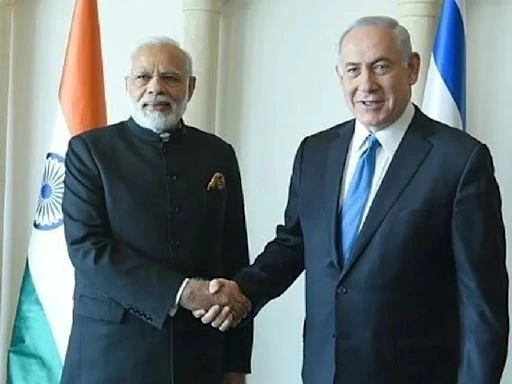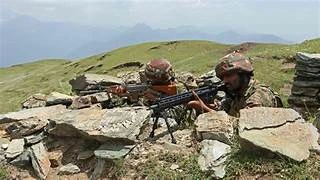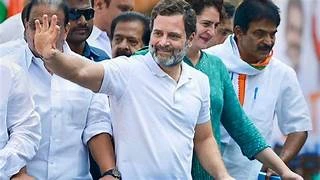12-May-2025,01:40 PM Amid the tense security environment following the recent Pahalgam terrorist attack in Jammu & Kashmir, senior Congress leader and former Chhattisgarh Chief Minister Bhupesh Baghel has raised pointed concerns about the effectiveness of Operation Sindoor, the large-scale military initiative launched by Indian armed forces. Speaking to reporters in Raipur, Baghel questioned whether the terrorists involved in the Pahalgam ambush had been apprehended, challenging the government’s narrative of success.
The remarks come as security forces continue their operations in the Kashmir Valley and the Ministry of Defence prepares to release a comprehensive update on Operation Sindoor’s progress.
Bhupesh Baghel Seeks Accountability After Pahalgam Terror Incident
“Were the Perpetrators Caught or Not?” Asks Bhupesh Baghel
Bhupesh Baghel’s comments came during a press briefing, where he expressed both concern and skepticism over the handling of recent terrorist activity. “The people of this country need to know: were the terrorists behind the Pahalgam attack caught or not? We salute the bravery of our armed forces, but we also need transparency from the government,” Baghel said.
He emphasized that while Operation Sindoor was being hailed as a robust counter-terror initiative, there was still ambiguity about the specific outcomes on the ground—particularly whether high-value targets were neutralized or apprehended.
Baghel’s remarks are being seen as part of a broader push by the opposition to hold the ruling government accountable on national security matters and operational disclosures.
Operation Sindoor: A Military Response Under the Scanner
The Mission’s Objective and Progress
Operation Sindoor, launched in response to a spate of cross-border terrorist attempts and drone infiltrations, has been one of the Indian military’s most high-profile counter-terrorism actions this year. The operation has included coordinated efforts by the Indian Army, Air Force, and intelligence agencies along the Line of Control (LoC) and in the hinterlands of Jammu & Kashmir.
According to official sources, several weapons caches, communication equipment, and training camps near the border have been destroyed. However, when it comes to the Pahalgam incident, no official statement has confirmed whether the assailants were killed or captured.
Bhupesh Baghel pointed out this information gap and urged Defence Minister Rajnath Singh to issue a detailed and verifiable update to maintain public trust.
Bhupesh Baghel: Opposition Has Right to Seek Answers
Demanding Transparency Without Undermining the Forces
In response to criticism that his comments may demoralize the armed forces, Bhupesh Baghel clarified that raising questions about operational success does not equate to disrespecting military efforts. “The Congress party and I have always stood with our soldiers. But standing with them doesn’t mean we must blindly accept everything the government claims without question,” he stated.
He further noted that national security issues should not be politicized but rather discussed responsibly with the public’s right to information in mind. Baghel’s stance reinforces the opposition’s strategy of constructive scrutiny rather than blanket criticism.
Public Reaction to Bhupesh Baghel’s Remarks
Mixed Responses Across Political Spectrum
Bhupesh Baghel’s comments triggered a wide range of reactions across the political landscape. BJP spokespersons quickly criticized him for “playing politics with national security,” while others acknowledged the validity of his concerns about transparency and communication.
Security experts noted that in a democracy, it is not only permissible but essential for elected representatives to ask questions—even about sensitive military matters—provided it is done respectfully and based on facts.
Public sentiment on social media platforms appeared divided. While many echoed Baghel’s call for more detailed updates from the government, others felt that such statements should be more cautiously framed, especially during ongoing military operations.
Bhupesh Baghel Urges Parliamentary Oversight of Counter-Terror Missions
Call for Institutional Accountability
Going a step further, Bhupesh Baghel proposed that Parliament consider forming a bipartisan committee to oversee and evaluate the progress of significant military operations such as Operation Sindoor. “While operational details must remain classified, there should be a structured way for Parliament to assess outcomes and resource utilization,” he said.
Such a mechanism, according to Baghel, would not only ensure greater transparency but also reinforce public trust in the government’s handling of internal security challenges.
Political Analysts Weigh In on Bhupesh Baghel’s Stand
A Calculated Question or Genuine Concern?
Political analysts believe Bhupesh Baghel’s comments serve both as a challenge to the central government’s narrative and as a move to re-establish his national political visibility. As a senior Congress leader with administrative experience, Baghel’s voice carries weight—particularly in matters of governance and public policy.
Analysts also note that Baghel’s remarks reflect a growing trend where opposition leaders are choosing security and defense topics to demonstrate their relevance and statesmanship ahead of national elections.
Conclusion: Bhupesh Baghel’s Queries Highlight Need for Greater Clarity
Bhupesh Baghel’s statement on the status of the Pahalgam attackers has opened up an important dialogue about how governments communicate during military operations. While Operation Sindoor continues to be described as a strategic success by defence authorities, questions about specific outcomes—such as arrests or eliminations—remain unanswered in the public domain.
In a democracy, questions like those raised by Bhupesh Baghel are vital for fostering accountability and transparency, even in the most sensitive of national matters. As India continues its fight against terrorism, the balance between operational confidentiality and public disclosure will remain a critical area of debate and policy refinement.
Source : ANI





